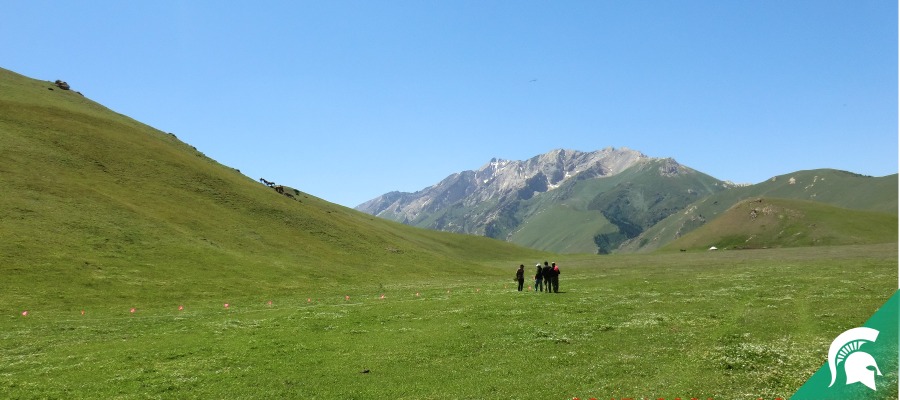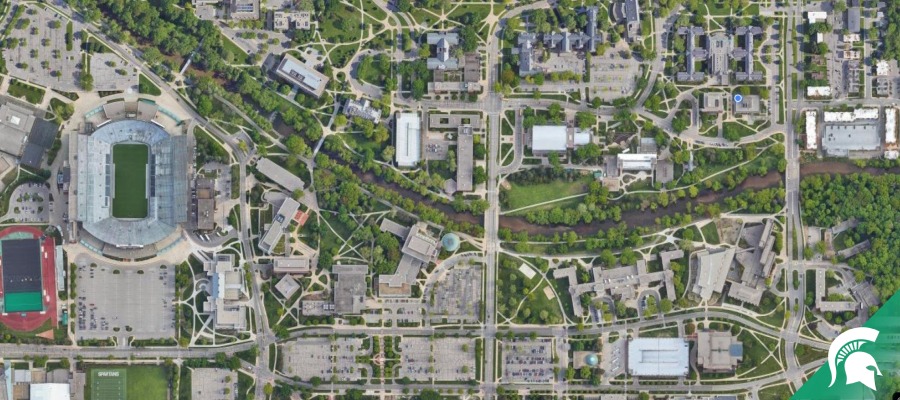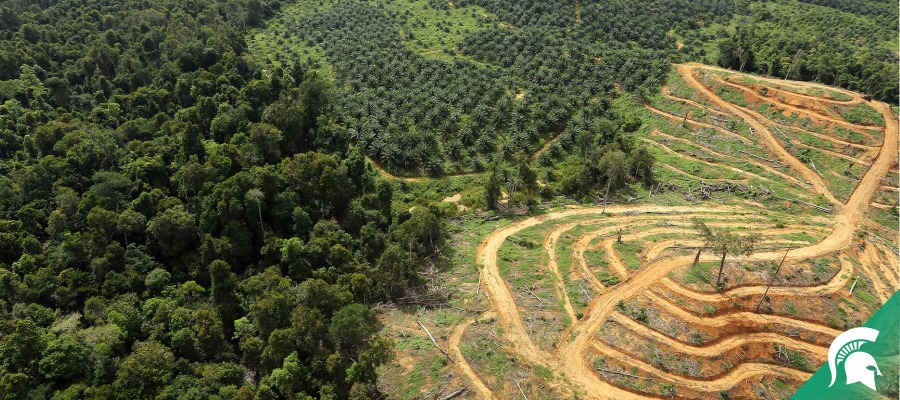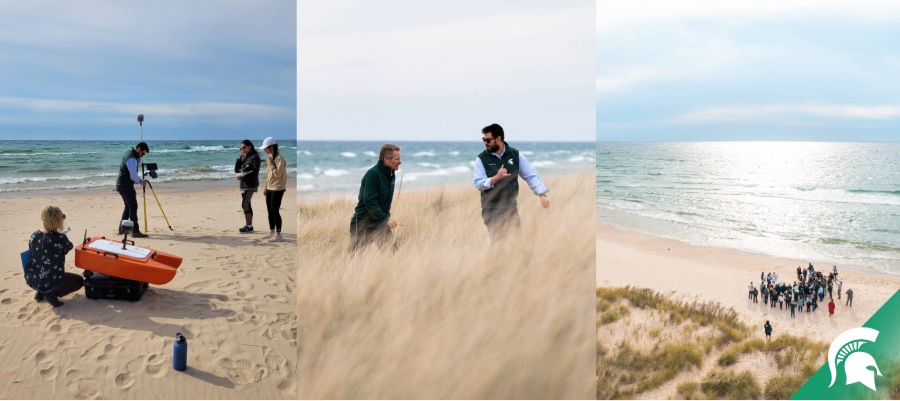Areas of Study and Research
Members of the Department of Geography, Environment, and Spatial Sciences study and conduct research in four general areas: Geospatial Technologies, Nature-Society Studies, Physical Geography, and Urban-Economic Geography.

Physical Geography
Physical Geography includes three main areas of interest: climatology, geomorphology, and plant geography. The climatology group researches a variety of subject areas of atmospheric science, including climate variability and change, synoptic climatology, agricultural climatology, boundary layer meteorology, mountain meteorology, mesoscale modeling, and fire weather.
Geomorphologic research and teaching emphasize the interactions between landforms, soils, and environmental change. Much of the work has a Great Lakes or Great Plains regional focus. Paleoenvironmental reconstruction is a significant component of the research. Research and teaching in plant geography and paleovegetation (fossil pollen and plant macrofossils) studies focus on understanding the nature and patterns of vegetation dynamics of both the present and past.
Areas of interest include:
- Climatology
- Geomorphology and Soils
- Plant Geography

Geospatial Technologies
Geographers are especially concerned with inventorying, representing, analyzing, and understanding real-world places and processes. Geospatial Technologies have developed from this traditional concern, with a particular emphasis on the role of recent technological developments in remote sensing, geographic information systems, global positioning systems, computer mapping, and data visualization. Such technology has revolutionized the way spatial information is acquired, processed, analyzed, and represented, with substantial implications for scientific research and public policy ranging far beyond the traditional bounds of scientific geography.
Areas of interest include:
- Remote Sensing
- Cartography
- Geographic Information Systems
- Spatial Data Visualization and Modeling

Nature-Society Studies
The Nature-Society Studies (NSS) group at Michigan State University investigates how people interact with their natural environment. Such interactions include not only how humans impact nature, but also how nature affects society by enabling or constraining economic activity, demographic mobility, and cultural exchange. Nature-Society Studies have a long history in geography and are of growing importance to the discipline — and beyond — given widespread concerns that the human species is now transforming natural systems on a global scale through climate change, tropical deforestation, desertification, the pollution of our oceans, and urban sprawl.
Areas of interest include:
- Land Use Change
- Economic Development
- Health & Medical Geography

Urban-Economic Geography
The economic-urban research group offers students the opportunity to become trained in the application of spatial analyses to understand urban problems, determine solutions, and to assess the effectiveness of public policies. Graduate students have the opportunity to work collaboratively on research projects with key urban/economic geography faculty members.
Areas of interest include:
- Economic Geography
- Residential Location
- Urban Structure
Department Members
For information about individual faculty and student members and their research, please visit our Directory page.
Publications
Faculty members and students publish their research in a wide variety of peer-reviewed journals. For a list of publications, please visit our Google Scholar account.
Coastlines and People Research

Research in the Department of Geography, Environment, and Spatial Sciences spans diverse themes that connect human and environmental systems. One key area of focus is the interaction between people and Great Lakes coastal landscapes.
The Department of Geography, Environment, and Spatial Sciences at Michigan State University leads research that advances scientific understanding and practical solutions for Michigan's coastal communities. This work brings together faculty, students, and partners from across campus and beyond to study the dynamic interactions between people, water, and landscapes — using data-driven, interdisciplinary approaches to inform policy and guide sustainable management.
Our goal is to address the critical challenges facing the Great Lakes’ coastal environments, particularly those linked to human activity and climate change. By connecting science to action, our researchers aim to promote the long-term resilience of shorelines and the communities that depend on them.
Spotlight Project: Interdisciplinary Citizen-based Coastal REmote Sensing for Adaptive Management (IC-CREAM)
Researchers from the Department of Geography, Environment, and Spatial Sciences, in collaboration with experts from Remote Sensing & Geographical Information Systems Research and Outreach Services (RS&GIS), are working with multiple Great Lakes communities that are experiencing the impacts of record-high water levels. The IC-CREAM project combines citizen science with advanced geospatial technologies to support adaptive management and enhance local capacity to respond to coastal change.
Learn More
If you are interested in learning more, please visit the Theuerkauf Lab.
Support & Engagement
If you are interested in supporting this research, please consider contacting Rachel Schmidt, Senior Director of Development for the College of Social Science at rschmidt@msu.edu to discuss ways to contribute to this important research.

